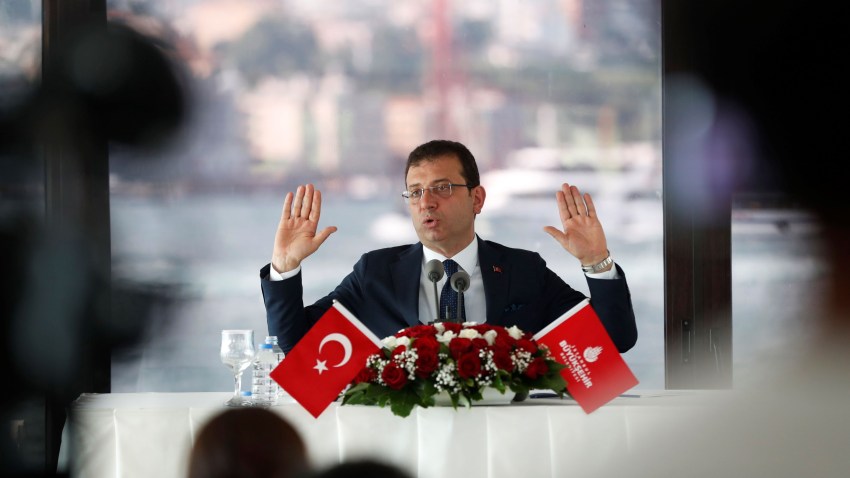The resounding victory by opposition candidate Ekrem Imamoglu in last week’s mayoral election in Istanbul delivered a sharp blow to Turkish President Recep Tayyip Erdogan and his ruling Justice and Development Party, or AKP, whose 17-year grip on power suddenly looks a little less tight. In addition to a resurgent opposition, Erdogan now also faces rumbles of discontent from within the AKP and a looming challenge from several of his own former allies who are planning to launch a new center-right party. But both the opposition and Erdogan’s erstwhile AKP partners face an uphill task taking on the man who has dominated Turkish politics for so long.
Imamoglu’s convincing victory—he won by 800,000 votes, 9 percentage points ahead of the AKP’s candidate, Binali Yildirim—was well deserved, doubly so since the poll was a dubious rerun, forced by a grudgeful AKP that refused to accept Imamoglu’s narrow, original win back in March. Erdogan and his party, citing “irregularities,” pushed election authorities to nullify those results and run the ballot again.
The opposition Republican People’s Party, or CHP—previously lambasted for weak leadership, disorganization and vicious infighting—finally hit on a winning formula. Imamoglu, little known outside of the Istanbul suburb where he served as mayor for four years and where he proved his mettle as an administrator, was both politically clean and charismatic. His ability to work a crowd with a message of hope struck a chord with an electorate hurt by Turkey’s faltering economy and hungry for change. It was even reminiscent of Erdogan himself at his peak—in sharp contrast to the AKP’s own candidate, a former prime minister handpicked to run by Erdogan, no less. For all of Imamoglu’s electoral skills, Yildirim’s diffident performance, coupled with a lackluster and often ham-fisted campaign, cost the AKP the election.

